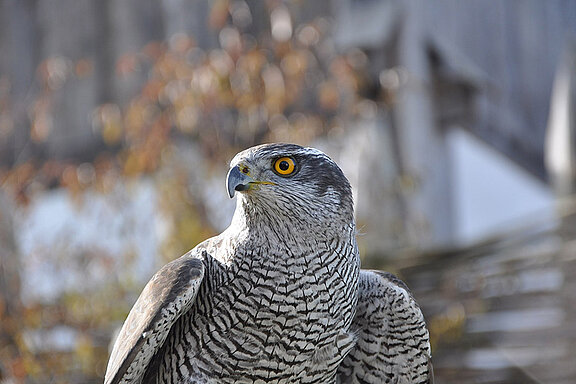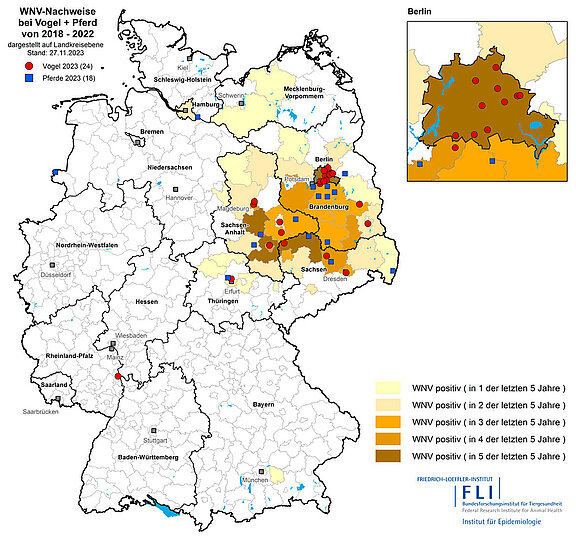In 2023, the National Reference Laboratory for West Nile Virus Infections at the FLI has so far confirmed 18 cases in horses and 24 in wild and zoo birds (as of 27 November 2023). The majority of infections were again detected in the federal states of Berlin, Brandenburg, Saxony-Anhalt, Saxony and some in Thuringia, areas affected in previous years.
In addition, for the first time an infection was detected in a young zoo bird in Rhineland-Palatinate in the Rhineland-Palatinate district. Preliminary phylogenetic analysis indicates that this is West Nile virus lineage 2, which is already circulating in the endemic areas of Germany.
In addition, an outbreak was detected in a horse in the southern part of Schleswig-Holstein (Herzogtum-Lauenburg district), the first case in this federal state and in close proximity to the outbreaks in the greater Hamburg area last year. The infection detected in a horse in the newly affected district of Sömmerda, which is adjacent to WNV-affected areas in Thuringia from previous years, must also be seen in the same context. Neither animal had any travel history.
This season, the confirmation of WNV infection in a horse in the county of Bentheim (Lower Saxony), close to the Dutch border, attracted attention. Following an extensive investigation into the case in conjunction with the local veterinary authorities, a history of travel to competitions and training in the Netherlands has been established, and it is currently impossible to determine the exact origin of the infection. Tests on two other horses from the same herd in the county of Bentheim were negative.
All the evidence presented in 2023 strongly suggests that the virus has spread beyond the known West Nile virus endemic areas.
Since the first case in 2018, West Nile virus has established itself mainly in the eastern German states mentioned above. Further spread cannot be predicted. Experience shows that cases of the disease in horses and birds can be expected again next year with the start of the mosquito season.
In accordance with the recommendations of the Standing Committee on Vaccination in Veterinary Medicine (StIKo Vet) of the Friedrich-Loeffler-Institute, horses in affected areas and horses being moved into affected areas should be vaccinated in advance. No vaccines are currently licensed for use in birds. However, under the new EU Veterinary Medicines Regulation, it is possible to reuse equine vaccines. The FLI has already carried out an initial pilot study to show how valuable zoo birds can be protected from the disease (https://doi.org/10.3390/vaccines11030652).
Information on current human infection levels is available from the Robert Koch Institute.



